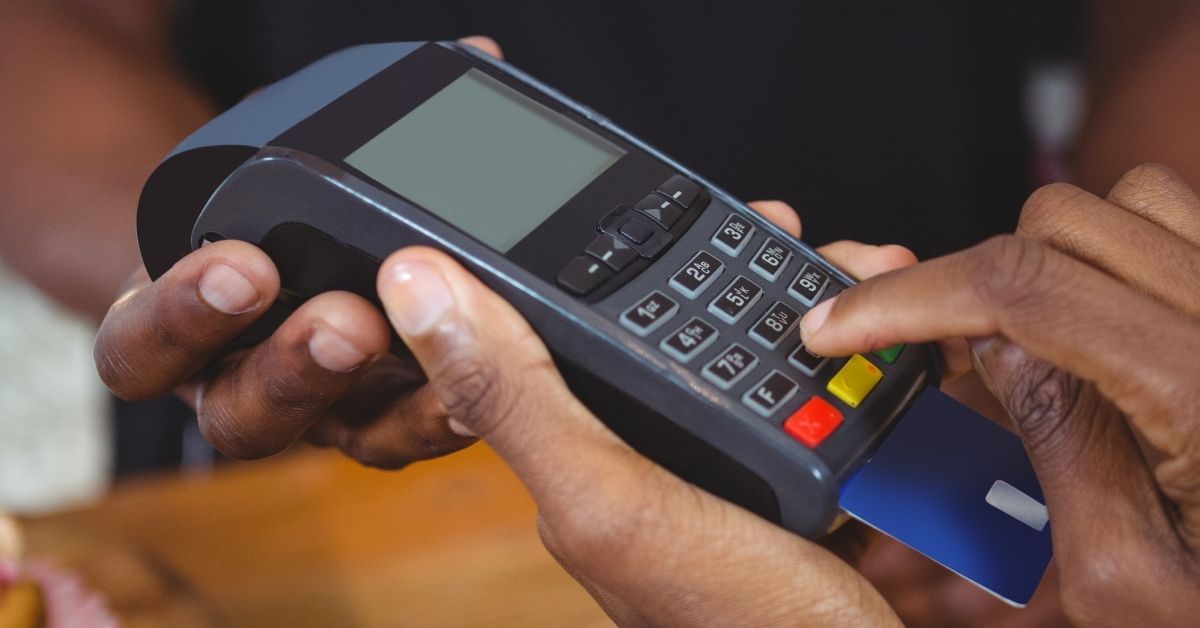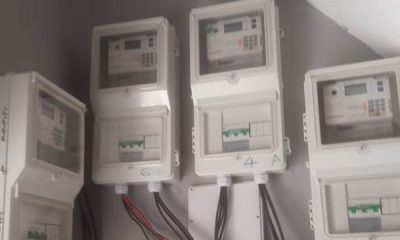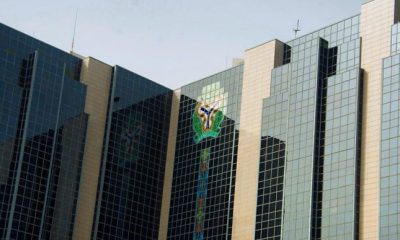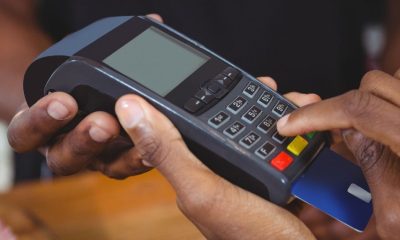Business
CBN cash withdrawal policy is illegal — the law says N5m, says Falana

Femi Falana, human rights advocate, has faulted the new cash withdrawal policy introduced by the Central Bank of Nigeria (CBN).
On December 6, the CBN directed deposit money banks and other financial institutions to ensure that weekly over-the-counter cash withdrawals by individuals and corporate entities do not exceed N100,000 and N500,000, respectively.
The policy, which is expected to take effect nationwide from January 9, 2023, has elicited varied reactions among Nigerians.
Reacting to the policy, Falana, in a statement on Monday, said the apex bank’s new cash withdrawal limit was “illegal and null” and contravenes provisions of section 2 of the money laundering act, 2022.
The human rights advocate said section 2 of the act, limits cash withdrawals by individuals and corporate entities to N5 million and N10 million, respectively.
He argued that since the act has not been amended, the new CBN policy is “null and void”.
“Since the money laundering act, 2022 (which has fixed maximum cash withdrawal to N5 million) has not been amended, the limitation of cash withdrawal of not more than N20,000 per day and N100,000 per week fixed by the Central Bank of Nigeria is illegal, null and void in every material,” Falana said.
“We urge the Nigerian people to ignore the illegal announcement.
“However, we are compelled to call on President Muhammadu Buhari to direct the management of the CBN to withdraw the illegal guideline and stop announcing more policies that are designed to sentence poor citizens to more excruciating economic hardship.”
Meanwhile, section 2 of the money laundering act 2022 states thus:
“(1) No person or body corporate shall, except in a transaction through a financial institution, make or accept cash payment of a sum exceeding—
(a) N5,000,000 or its equivalent, in the case of an individual; or (b) N10,000,000 or its equivalent, in the case of a body corporate.
“(2) A person shall not conduct two or more transactions separately with one or more financial institutions or designated non-financial businesses and professions with intent to — (a) avoid the duty to report a transaction which should be reported under this act; and (b) breach the duty to disclose information under this act by any other means.”
Business
Five levies Nigerians pay for electronic transactions

The Central Bank of Nigeria has ordered banks operating in the country to start charging a cybersecurity levy on transactions.
A circular from the apex bank on Monday disclosed that the levy implementation would start two weeks from today.
The circular was directed to all commercial, merchant, non-interest, and payment service banks, among others.
The circular revealed that it was a follow-up on an earlier letter dated June 25, 2018 (Ref: BPS/DIR/GEN/CIR/05/008) and October 5, 2018 (Ref: BSD/DIR/GEN/LAB/11/023), respectively, on compliance with the Cybercrimes (Prohibition, Prevention, Etc.) Act 2015.
However, the apex bank exempted loan disbursements and repayments, salary payments, intra-account transfers within the same bank or between different banks for the same customer, and intra-bank transfers between customers of the same bank from the levy.
Also exempted from the levy were inter-branch transfers within a bank, cheque clearing and settlements, Letters of Credits, and Banks’ recapitalisation-related funding only bulk funds movement from collection accounts, savings, and deposits including transactions involving long-term investments, among others.
Nigerians on social media are lamenting the new levy, which they complain has added to the multiple levies paid for electronic transactions. In this report, PUNCH Online highlights the five other transaction levies paid and the amount deducted on transactions between N1,000 and N1,000,000.
1. Cybersecurity levy
N5 is charged on the transaction of N1,000
N50 is charged on the transaction of N10,000
N500 is charged on the transaction of N100,000
N5,000 is charged on the transaction of N1,000,000
N50,000 is charged on the transaction of N10,000,000
2. Transfer fee
N10 is being charged on the transaction below N5,000
N25 is being charged on the transaction between 5,001 and N50,000
N50 is being charged on transactions above N50,000
3. Stamp duties
N50 is being charged on transactions between N10,000 and N10,000,000
4. Short Messaging Service (SMS)
N4 is being charged on each electronic transfer notification
NB: This is only applicable to customers on eligible electronic transactions. Those who opt for e-mailing services are not charged the same.
5. Value Added Tax
N0.75 is being charged on N10 transfer fee
N1.875 is being charged on the N25 transfer fee
N3.75 is being charged on N50 transfer fee.
Business
Naira depreciates at parallel market, appreciates at official window

The naira depreciated further to N1,430 at the parallel section of the foreign exchange (FX) market on Monday.
The FX rate represents a 4.38 percent drop from N1,370 traded on May 1.
Speaking to TheCable in Lagos, currency traders, also known as bureau de change (BDC) operators, put the buying rate of the greenback at N1,400 and the selling price at N1,430 — leaving a profit margin of N30.
At the official window, the local currency appreciated by 3.30 percent to N1,354.21 on Monday — from N1,400.40 on May 3.
During the trading period, the dollar exchanged for as high as N1,441 and as low as N1,285 according to data from FMDQ Exchange, a platform that oversees FX trading in Nigeria.
Meanwhile, Richard Montgomery, the British high commissioner to Nigeria, on May 5, said the new exchange rates policy under the present government and the leadership of the Central Bank of Nigeria (CBN) is attracting investors.
“You all know that the foreign exchange system in the past chased away investors because it is difficult to get your exchange done and you do not know whether you will be able to move money across borders,” Montgomery said.
The British envoy also said trade relations between Nigeria and the United Kingdom (UK) are about £7 billion.
Business
NERC reduces FX rate for calculating new tariff for Band A customers by 16.03%

The Nigerian Electricity Regulatory Commission (NERC) has reduced the exchange rate for calculating the current electricity tariff for Band A customers by 16.03%, from N1,463.3/$ to N1,277.8 from May to December 2024.
This is revealed in the commission’s Multi Year Tariff order (MYTO) for May to December 2024 released recently.
The NERC MYTO was reviewed following the appreciation of the naira in the foreign exchange market in the last one month.
Following statements by various electricity distribution companies on the reduction of electricity tariff for Band A customers on Monday, the NERC finally confirmed the drop, stating that it was due to appreciation of the naira since the last MYTO review earlier in the month of April.
The NERC approved the reduction of electricity tariff for band A customers from N225 per KWh to 206.8/KWh representing a drop of 8.1%.
Earlier in April, the NERC approved an over 200% hike in electricity tariff for band A customers from about N66 per KWh to N225/KWh, with significant changes in the exchange rate for calculation from N919/$ to N1,463, representing an N543.9 increase.
-

 Crime1 week ago
Crime1 week agoUK-based Nigerian doctor, Tijion Esho loses licences over sex for free Botox injections
-

 Entertainment17 hours ago
Entertainment17 hours agoKanayo introduces first son to filmmaking (Video)
-

 Business16 hours ago
Business16 hours agoNERC reduces FX rate for calculating new tariff for Band A customers by 16.03%
-

 Business17 hours ago
Business17 hours agoCBN directs banks to charge 0.5% cybersecurity levy on electronic transfer
-

 Business16 hours ago
Business16 hours agoNaira depreciates at parallel market, appreciates at official window
-

 Crime17 hours ago
Crime17 hours agoNigerian vendor in UK, Musiliu Badejo jailed for selling toxic skin bleaching products
-

 Business11 hours ago
Business11 hours agoFive levies Nigerians pay for electronic transactions
-

 Entertainment10 hours ago
Entertainment10 hours agoPortable acquires luxury house in Lekki (Video)














